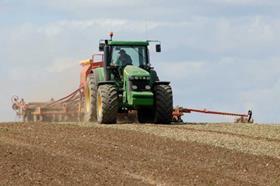
The UK's first School of Sustainable Food and Farming is being created at Harper Adams University in Shropshire.
Supported by Morrisons and co-partner RAFT Solutions, the school will draw on academic and practical expertise, as well as industry networks, to develop knowledge and skills for farmers and other businesses in the supply chain who are committed to reducing the environmental impact of food production.
The school will support and further develop production systems research geared towards more sustainable farming. Initial research topics will include livestock breed choice, diet composition, yield improvement, agricultural building design, on-farm renewable energy, precision farming, sensors, and use of data.
Using knowledge from the research, the school will develop practical advice and guidance to help farmers adjust their practices to be more sustainable.
Professor Michael Lee, Harper Adams deputy vice-chancellor, said: “We are extremely excited to team up with Morrisons and RAFT Solutions to deliver this critically-needed collaboration which will support the transition to a more sustainable food system delivering to both human and planetary health.
“The initial targets will be centred around how to achieve net-zero UK agriculture. However, the ambition of the school will include wider aspects of sustainability including biodiversity, animal welfare, rural community support, green energy production and farm profitability.”
The school will also provide a platform from which relevant research can be translated and scaled to assist the entire food value chain.
Capital investment in real farming projects will enable direct farming engagement with the school. Work placements, apprenticeships and other workforce development initiatives are also being considered to support the need for future sustainable food and farming professionals.
Sophie Throup, head of agriculture at Morrisons, said: 'We are making a significant investment into this project as part of our pledge to be the first supermarket to be directly supplied by net-zero carbon British farms by 2030. We look forward to working as a partnership and to bringing the best brains together within the industry - to provide this new breadth of sustainability training for our British farmers.'



